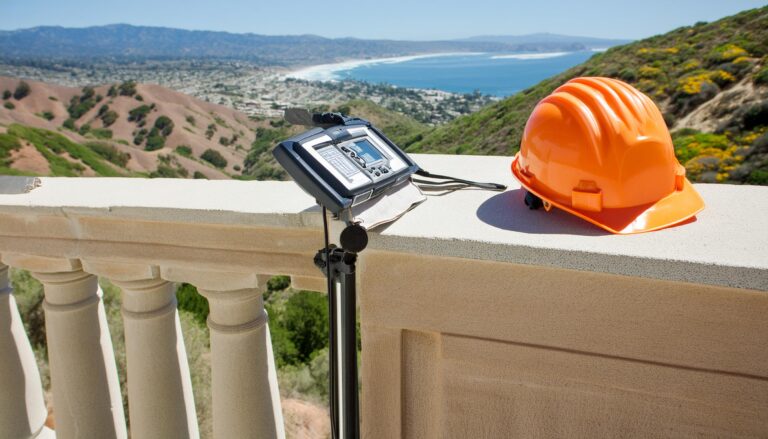SB-326 Balcony Inspections Safety Checklist

Table of Contents
Why SB-326? Because Safety Isn’t Just a Buzzword
SB 326: The Balcony Inspection Law – Who’s Covered & What’s Included?
What Do Inspectors Look For? More Than Meets the Eye
Navigating the SB326 Inspection Process
Tips for Budgeting for Balcony Inspections
FAQ Section: Top Questions & Answers
California homeowners and HOA boards, listen up! We know those SB-326 balcony inspection requirements can feel overwhelming. Trust us, we’ve been there. But let’s take a deep breath and break it down in plain English. This guide will help you navigate this crucial part of California balcony safety regulations, ensuring your property stays compliant and, most importantly, safe.
Why SB-326? Because Safety Isn’t Just a Buzzword
It’s not just about red tape and annoying paperwork. SB 326 is the result of some real-life balcony tragedies in California. Its purpose is to prevent those kinds of accidents by ensuring that balconies in multi-family buildings are regularly inspected and maintained.
Contact DrBalcony for a professional inspection!
Ensure the safety of your balcony and living space with DrBalcony – We’re a Tech Engineering firm that specializes in California SB326 & SB721 balcony inspections. Over 300+ completed projects in California.
Request A Free EstimateClick To Call
SB 326: The Balcony Inspection Law – Who’s Covered & What’s Included?
- Who: If your building has three or more units (and was built before 2019), it probably falls under SB 326. This mainly affects condominiums and homeowners’ associations (HOAs).
- What: The law covers all “exterior elevated elements” (EEEs) that are part of the common area. This means balconies, of course, but also decks, stairs, elevated walkways – basically, anything over six feet above the ground.
- When: The initial inspection deadline is January 1, 2025. After that, inspections are required every nine years. Yep, it’s a recurring thing, so get used to it!
What Do Inspectors Look For? More Than Meets the Eye
A thorough SB326 inspection goes beyond just a visual check of your balcony. Here’s what those sharp-eyed professionals will be assessing:
- Structural Integrity: They’ll check the beams, joists, railings, and other load-bearing parts to ensure they’re solid and can handle the weight they’re meant to carry.
- Waterproofing: Waterproofing is crucial in California’s climate. The inspector will look for cracks, leaks, or signs of moisture damage that could lead to rot or corrosion over time.
- Safety Hazards: Loose railings, trip hazards, or any other potential safety issues will be noted and need to be addressed.
Navigating the SB326 Inspection Process
- Don’t DIY: Only licensed architects, engineers, or certified building inspectors are qualified to conduct SB-326 inspections.
- Get Multiple Quotes: Don’t just go with the first company you find. Compare prices and services to find the right fit for your HOA.
- Ask the Right Questions: Before you hire someone, ask about their experience with SB326 inspections, their reporting process, and what happens if repairs are needed.
- Be Prepared to Address Repairs: If the inspection uncovers issues, don’t delay. Prompt repairs are key to staying compliant with the law.
Contact DrBalcony for a professional inspection!
Ensure the safety of your balcony and living space with DrBalcony – We’re a Tech Engineering firm that specializes in California SB326 & SB721 balcony inspections. Over 300+ completed projects in California.
Request A Free EstimateClick To Call
Partner with DrBalcony for Peace of Mind
We know navigating the world of California balcony inspections can be overwhelming. That’s why we offer comprehensive SB 326 inspection services tailored to HOAs and condominiums. Our experienced team provides thorough assessments, detailed reports, and expert guidance to ensure your balconies are safe, compliant, and worry-free.
Let us take the stress out of SB-326 compliance. Contact us today for a free consultation and quote. Your residents will thank you!
FAQ Section: Top Questions & Answers
My property is well-maintained. Do I really need SB-326/SB-721 inspections?
YES! Even with excellent maintenance, hidden issues can develop due to construction errors, material flaws, or severe weather exposure. Inspections are about ensuring those don’t turn into major problems.
Our balconies were inspected a few years ago – isn’t that enough?
Unfortunately, no. California laws mandate inspections on a set schedule, often every 6 years. Deterioration can happen quickly, making regular assessments essential.
Can I use my regular handyman for the balcony inspection?
It’s not recommended. Unless they hold specific licenses (architect, structural engineer, etc.) their inspection won’t be considered valid for SB-326/SB-721 compliance.
What if the inspection uncovers major issues?
First, don’t panic! Early detection often means less extensive (and expensive) repairs are needed. Work with your inspector to prioritize fixes, and explore if they offer repair services for a streamlined solution.
I’m worried about the cost of inspections. Are there any resources to help?
Start by getting detailed quotes from multiple companies. Factor in that proactive inspections help you avoid even bigger costs down the line due to neglected problems. Some property management associations offer guidance on budgeting for balcony compliance.
